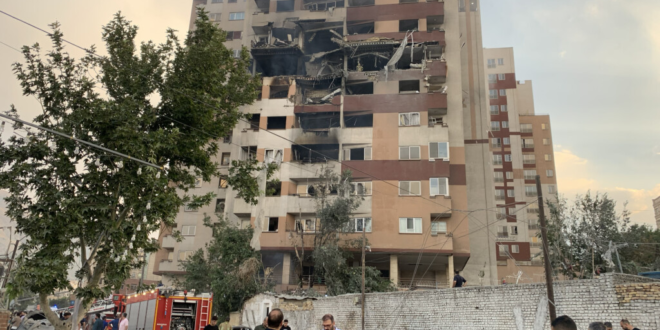Latest Developments
- IDF Strikes Targets Across Iran: Israel launched multiple waves of strikes against Iranian targets associated with the regime’s nuclear program in the early hours of June 13. Announcing the operation, dubbed “Rising Lion,” Israeli Prime Minister Benjamin Netanyahu described it as “a targeted military operation to roll back the Iranian threat to Israel’s very survival,” emphasizing that it “will continue for as many days as it takes to remove this threat.” Netanyahu stressed his gratitude to President Donald Trump “for his steadfast stance,” adding “he said time and again, Iran must never have a nuclear weapon.”
- Nuclear Program Struck, High-Level Figures Reportedly Targeted: Netanyahu described a comprehensive set of targets struck during the operation, including “the heart of Iran’s nuclear enrichment program, the heart of Iran’s nuclear weaponization program, Iran’s main nuclear enrichment facility in Natanz, Iran’s leading nuclear scientists working on the Iranian bomb,” and “the heart of Iran’s ballistic missile program.” Israel also reportedly eliminated the head of Iran’s Islamic Revolutionary Guard Corps (IRGC), Maj. Gen. Hossein Salami, in a strike on the IRGC’s headquarters in Tehran. Several other high-level Iranian military leaders and top nuclear scientists, including Fereydoun Abbasi-Davani and Mohammad Mehdi Tehranchi, are believed by Israel to have been eliminated in the opening wave of strikes against the Islamic Republic.
- Israel Prepares for Response: Air raid sirens sounded throughout Israel as the IDF announced an “immediate change in the Home Front Command’s defense policy.” Israelis in all parts of the country were told to limit themselves only to essential activities and not attend schools and workplaces, with the exception of essential businesses and gatherings. Following the strikes, the U.S. State Department directed all U.S. government employees in Israel and their families to shelter in place until further notice.
FDD Expert Response
“This Israeli attack couldn’t have happened without full coordination between the United States and Israel. The days ahead carry real risk — but the cost of inaction was far greater. Israel did what had to be done: defend itself, the West, and ultimately the Iranian people from the genocidal ambitions of the mullahs. Nuclear talks were heading to collapse under Tehran’s defiance, and sanctions alone couldn’t stop Iran’s race toward multiple nuclear weapons.” — Mark Dubowitz, CEO
“A response from Iran is highly likely, and it may not come from Tehran alone. Iran’s network of proxies and regional clients, including Hezbollah, Iraqi militias, and the Houthis, could coordinate a multifront retaliation. One of the most effective tactics to inflict maximum damage on the Israeli home front would be to overwhelm its air defense systems. Israel will remain on high alert, with only a brief window to detect, assess, and respond to this looming threat.” — Joe Truzman, Senior Research Analyst and Editor at FDD’s Long War Journal
“While acting in self-defense, the state of Israel has likely done the world and region an incalculable service in eliminating a key threat to peace — the Islamic Republic’s nuclear weapons program. When the dust settles in the coming days, as the world thanked Jerusalem for stopping Syria’s and Iraq’s nuclear weapons programs, so too will they breathe sighs of relief that this more than two-decade atomic threat may be no more.” — Andrea Stricker, Nonproliferation and Biodefense Program Deputy Director and Research Fellow
 Eurasia Press & News
Eurasia Press & News




